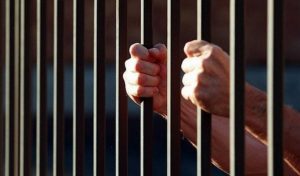A US State Department report has raised questions about the rights authorities accord those in their custody, even as Guyana is moving towards reforming its security apparatus through the Citizen Security and Strengthening Programme (CSSP). The report has raised questions on whether the rights of suspects are being trampled on
The report has raised questions on whether the rights of suspects are being trampled on
According to the recently released 2017 Human Rights Report, there were cases wherein authorities did not respect the rights of persons it detained, such as the right to prompt access to an Attorney-at-Law.
“An arrest requires a warrant issued by a court official, unless an officer who witnesses a crime believes there is good cause to suspect a crime or a breach of the peace has been or will be committed. The law requires that a person arrested cannot be held for more than 72 hours unless brought before a court to be charged,” the report states.
“Authorities generally observed this requirement. Bail was generally available, except in cases of capital offences and narcotics trafficking. Although the law provides criminal detainees prompt access to a lawyer of their choice and to family members, authorities occasionally did not fully respect these rights”, the report noted.
The report said the state provides legal counsel for those without the resources, but this is only in cases when such persons are charged with a capital offence. It acknowledged the existence of the Legal Aid Clinic, a non-governmental organization (
NGO) which it noted provides legal counsel at a reduced fee in certain circumstances, which the clinic itself determines.
“Police routinely required permission from the senior investigating officer, who was seldom on the premises, before permitting counsel access to a client.
Pre-trial Detention
Lengthy pre-trial detention remained a problem, due primarily to judicial inefficiency, staff shortages, and cumbersome legal procedures”, the report said.
“The average length of pre-trial detention was three years for those awaiting trial at a magistrate’s court or in the High Court. This was often beyond the maximum possible sentence for the crime for which they were charged.”
Reform
The security reform project which began in 2007 was scrapped in 2009 after the British Government had requested to have oversight of the programme to ensure that there was ‘value for money’.
The former Government had disagreed with the manner in which the British Government had wanted the programme to be run, claiming that Britain had sought to intrude upon Guyana’s sovereignty.
However, the British Government said the Government of Guyana had submitted a different proposal, one which had focused on Police modernisation rather than a holistic approach to reform. The intention was to build a workable basis for improving national security while reducing crime in Guyana.
Government believes that, once implemented, Guyana’s security sector will be significantly strengthened, and hopefully, this would lend to reduction in the number of illicit activities that take place.
President David Granger has said, too, there is need for a stronger Police Force, one that is better equipped with all tools necessary to function adequately.



